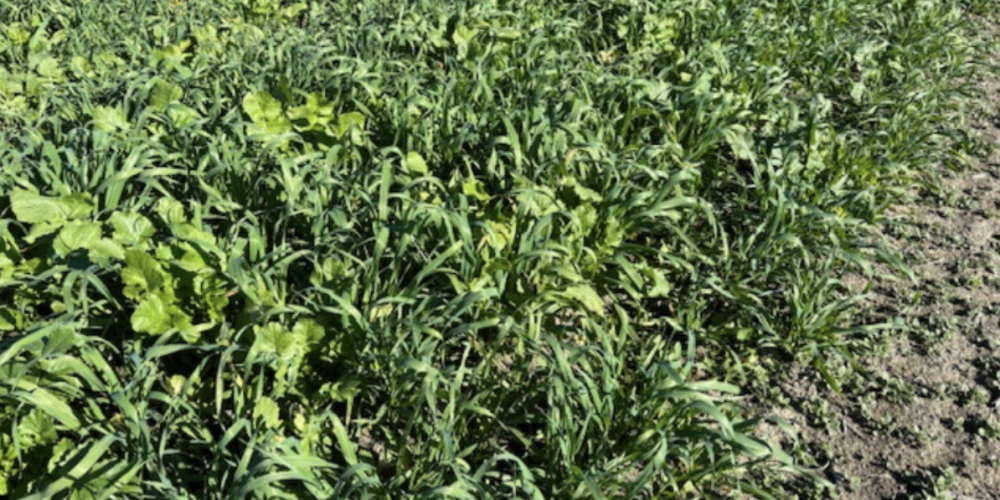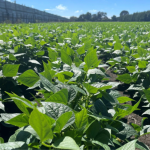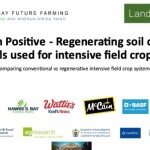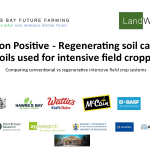Carbon Positive May Update
Added 2 years ago
By David France

The Carbon Positive project aims to “Regenerating Soil Carbon in soils used to grow intensive
field crops on the Heretaunga Plains”.
The trials compare three growing systems including conventional best practice, Hybrid combining
the best of both and regenerative systems which aims to reduce soil tillage, use of chemicals and
improve soil carbon as an indicator for healthy soils.
Winter cover crops have been established after the Watties Heinz Tomato crop was successfully
harvested.
On the conventional trail annual rye grass has been planted.
On the Hybrid and Regenerative trials plots a mix of Oats, Vetch (legume), Clover, Tillage
Radish(Daikon), Buckwheat and Sunflowers has been sown.
The aim of the mixed planting is to encourage diversity in root depths and different interactions to
enhance the soil biome and promote soil health.
One key learning from the Carbon Positive trail so far is the careful consideration of cover crops and
the critical timings for termination and transition from cover crop to the next commercial crop.
Best practice conventional systems utilise chemical and tillage options to get defined results while
the challenge of Regenerative is to reduce both chemical and tillage and let nature do its work.
Key outcomes from the Heinz Watties trials.
The Carbon Positive trail has had excellent support from both our large processor partner, McCains
and Heinz Watties.
McCains introduced the importance of the EIQ system to evaluate the toxicity of chemicals used
when we grew sweetcorn for them last season which has been an important discovery for the
project and wider industry as a way to rank chemical inputs and consider alternative treatments.
Heinz Watties are also thinking ahead after their tomato crop considering how they might reduce
the use of copper and also adjusting row widths to accommodate mechanical weeding in the future,
both actions with the potential to reduce chemical use longer term.
In reality trials like Carbon Positive are designed to challenge convention and change is often
adopted through many small steps, hence ethe importance of the hybrid system which aims to pick
the best of both systems.

Carbon Positive Trial Update – February 2025

Carbon Positive Update

Carbon Positive Trial Update - October 2024

Carbon Positive Project Update April 2024

Carbon Positive March Update

